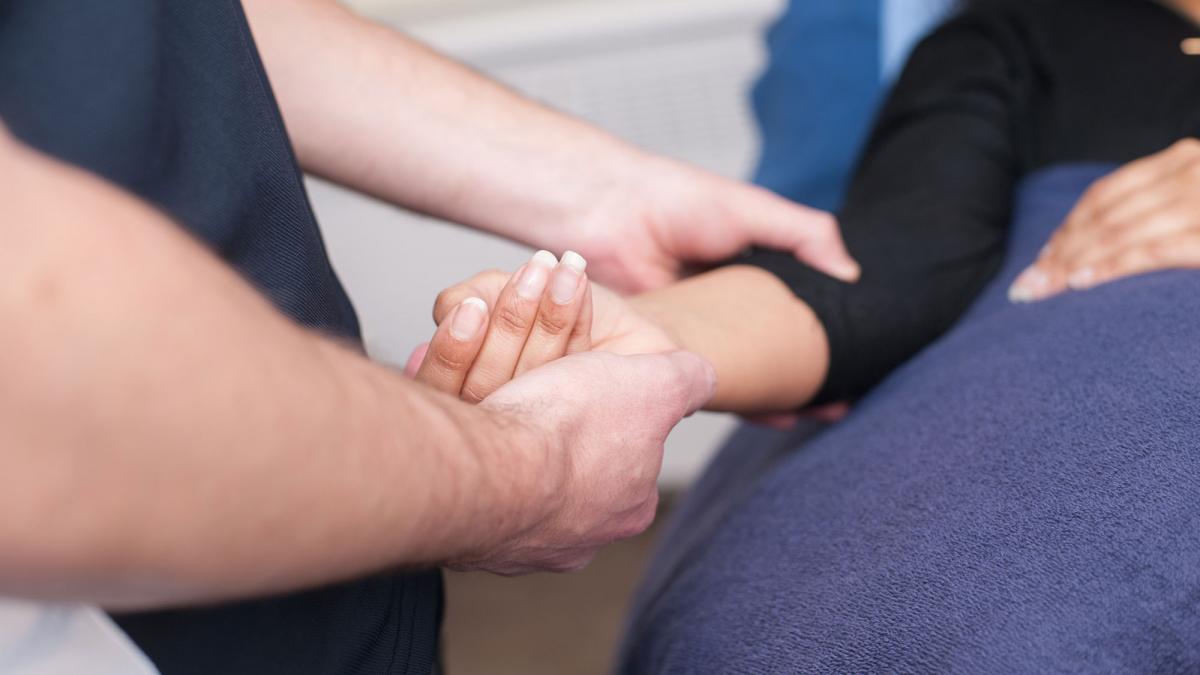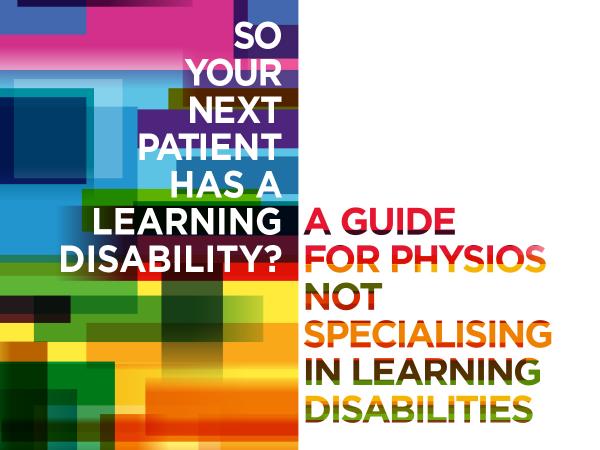People with learning disabilities are more likely to be admitted to hospital with conditions that could be prevented by better community and primary health care.

This is one of the findings in a new review from the National Institute for Health Research (NIHR).
Better Health and Care for All considers the evidence provided by 23 published studies and calls for improvements to how health and social care services are organised and delivered to people with learning disabilities.
Among other recommendations, it calls for more regular health checks for people with learning disabilities, so that GPs address health problems that may result in hospital admissions and poor health in the long term.
Fran Hallam, CSP research into practice officer, said: ‘It draws together the latest evidence on supporting people with learning difficulties to stay well and highlights the importance of tailoring support to the needs of the individual across all health and social care settings.
The research findings are applicable not only to specialist learning disability physiotherapists, but also to physiotherapists working in mainstream services.
The CSP has produced a new leaflet that aims to give some simple but practical advice to mainstream physiotherapists about how to manage their appointments for people with learning disabilities.
Physiotherapists have an essential role
The Association of Chartered Physiotherapists for Adults with a Learning Disability (ACPPLD) welcomed the review and praised it for raising awareness about the health and social care needs of people with learning disabilities, as well as the ongoing health inequalities and challenges they face when accessing healthcare.
However, they also highlighted that NIHR had acknowledged that their review did not include all the research in the field.
‘Therefore, it is worth acknowledging that in addition to the health needs described, a high proportion of people with a learning disability have physiotherapy related needs,’ David Standley, ACPPLD research and CPD officer, explained.
‘This is due to associated physical impairments and conditions, such as premature aging; increased risk of injuries and falls; poor health literacy; and leading sedentary and unhealthy lifestyles.
As a result, many adults with a learning disability will require access to physiotherapy at some point within their lifetime.
He added that evidence shows that people with a learning disability have a higher prevalence of falls, musculoskeletal injuries, mobility problems, postural needs, dysphagia and respiratory complications.
In addition, research indicates that adults with a learning disability:

- Lead sedentary lives; with up to 92 per cent not achieving the recommended amount of physical activity
- Fall at the same rate as in the elderly population, with 25-40 per cent of people falling at least once a year
- Are considered a high-risk group for deaths from respiratory problems
- Experience changes in body shape that result in secondary problems such as chest infections and pressure sores, which impact on their quality of life and can lead to premature death
‘Specialist learning disability physiotherapists have an essential role in managing these needs and it is essential they are appropriately resourced and commissioned,’ Mr Standley said.
‘And there is widespread evidence and opinion that specialist physiotherapy has a positive impact on the health outcomes; quality of care; and the experiences of adults with a learning disability and their care network, as well as reducing the cost for health and social care.’
The ACPPLD have recently endorsed standards of practice for physiotherapists working with adults with a learning disability, which outlines the specialist role and presents the evidence that supports the profession.
Findings reveal a need for more consistent measures

As well as finding that people with learning disabilities have poorer health than the general population and the NIHR review reveals that they are:
- More prone to swallowing problems that put them at risk of respiratory infections, which could be identified by regular health checks
- Less likely to have annual health checks with their GP, which research shows could improve their health and care
- More commonly experience depression and anxiety, so could benefit from adapted interventions for low mood and anxiety that include input from their usual carers
- And are five times more likely to be admitted to hospital for conditions such as urinary infections, which could be prevented by better community and primary health care
It also indicates that general hospitals vary greatly in how well they identify and make adjustments for patients with learning disabilities, as many lack effective measures to flag up such patients, and family carers are often not involved in care processes.
Find Out More
Number of subscribers: 4
